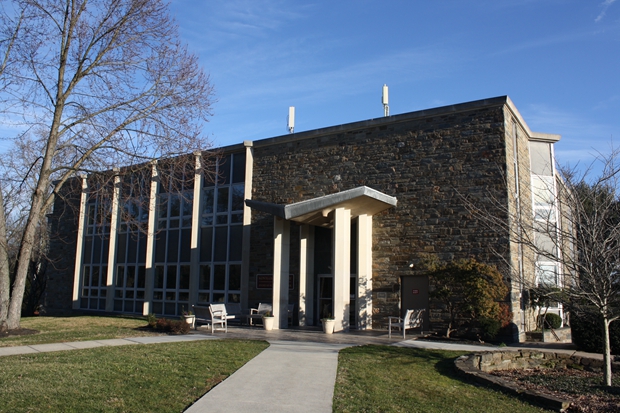Editor's Note: The author, pen name: Toward-the-light, is a regular contributor to GospelTimes, who started her theological study in the Westminster Seminary this September. She'll write her experience of study, life and faith in the US.
After many years of suffering from studying, ever since I believed in Christ, I have often wondered, what if there had been God in my life? How would I have dealt with some people and things in accordance with God's Word?
Unexpectedly, after leaving school for many years, this assumption has become a reality. As if I had returned to the school, I became a student again, of a renowned school, learning theology -- the only one major which is not worldly.
The major is about God, from start to finish; while man is just a tool used by God. Since theology is so unique, the seminary's learning atmosphere is also very different from other schools.
When I first entered the Westminster, I often felt that something was out of place there. Days later I suddenly realized a serious imbalance between male and female ratio: at most seven to three. No matter where you go, you may end up being surrounded by a brother group easily. A majority of classmates are brothers while sisters are scattered here and there in a classroom. At the first glimpse it seems that I had come to an Institute of Nuclear Physics.
Gradually, I began to realize that according to the traditions of the Reformed Church only men are ordained as priests, and there are very few positions in the Church suitable for women. Therefore, the Reformed Theological Seminary originally did not recruit sisters. Later they developed some majors suitable for sisters. Most of the brothers major in pastoring a church, which has not opened to sisters so far. Sisters study in majors such as psychological counseling, academic research and other related topics.
As a result, the learning intensity is entirely tailored for brothers, (and normally the brothers are stronger than sisters both physically and mentally.) Thus, for sisters to survive here, there is no doubt that they need to make a greater effort than brothers.
People say that the United States emphasize the quality of education and students bear little pressure in their study. It seems that students are always learning through play, but that's kindergarten, primary and secondary schools.
There is no bachelor degree in American theological college. The starting point is a master degree, so the students have to study other majors first before they come to do theology.
Working on master and doctor degree is like joining special forces. No wonder I often heard the students say Westminster Theological Seminary is a military academy. Fully agree!
The school's learning progress and intensity are stronger than every school I had attended. I am also very surprised to learn the American's serious learning attitude in the United States. Americans look casual in what they eat and wear. However, they could lose themselves completely in what truly interest them. Those who come to the seminary to study are determined to serve the Lord wholeheartedly, and they put all their passion into study.
There is no resting time between classes. I have never seen such people as those who study so diligently. There are a few minutes of break after taking classes for 2 to 3 hours on end. And during this break, students who wait to ask their professors questions could form a really long line. Students who do not have the chance to ask questions have to send emails to their professors after the class.
In the classroom, students can sit snugly, eat snacks and drink coffee, but these are just superficial. Those who are eating and drinking are listening to the class with their heart. They interact with the professor very well and can often raise some meaningful questions. In the eyes of the Americans, such students are good students.
Although the intensity of learning is unprecedented, the school thoroughly implement the "do not fight" biblical principle, which means that students will not be listed according to their scores.
Whenever the examination papers are handed to students, the teacher will make sure that other students do not have the chance to oversee the student's score on the back side of the paper. Students will not ask each other their scores. To ask a student's score is like asking how much a person make per month.
This results in a very peculiar phenomenon: only the teacher knows the student's performance. That means students do not know each other's academic performance and who have earned a good grade in the exam. Since they do not list students' scores in public nor do students know each other's test scores, the root cause of contention is cut off successfully.
In addition, the teachers take great pains to wipe out the academic gap among students' grades through the questions in the exam and other means. It is very complex to count students' scores in a seminary and it requires specialized computer software. Usually attendance, papers, tests, etc. can account for 70%, final exam only 30%, and finally converted into A, B, C, D several grades. Eventually, we basically have almost the same results for most of the students.
Although students almost lose their life in studying, when the final results come out, everyone is happy. In stark contrast to the exam-oriented system we have suffered, trying to widen the gap between students, to separate them into different grades and in order to select some people, here emphasizes that everyone should be included.
Experiencing the learning style here, gradually I understand the "good school." In those good schools, not one teacher is unqualified, not one student kills time; teachers teach what they believe in their heart while students learn what they desire in their heart.
Translated by Alvin Zhou









